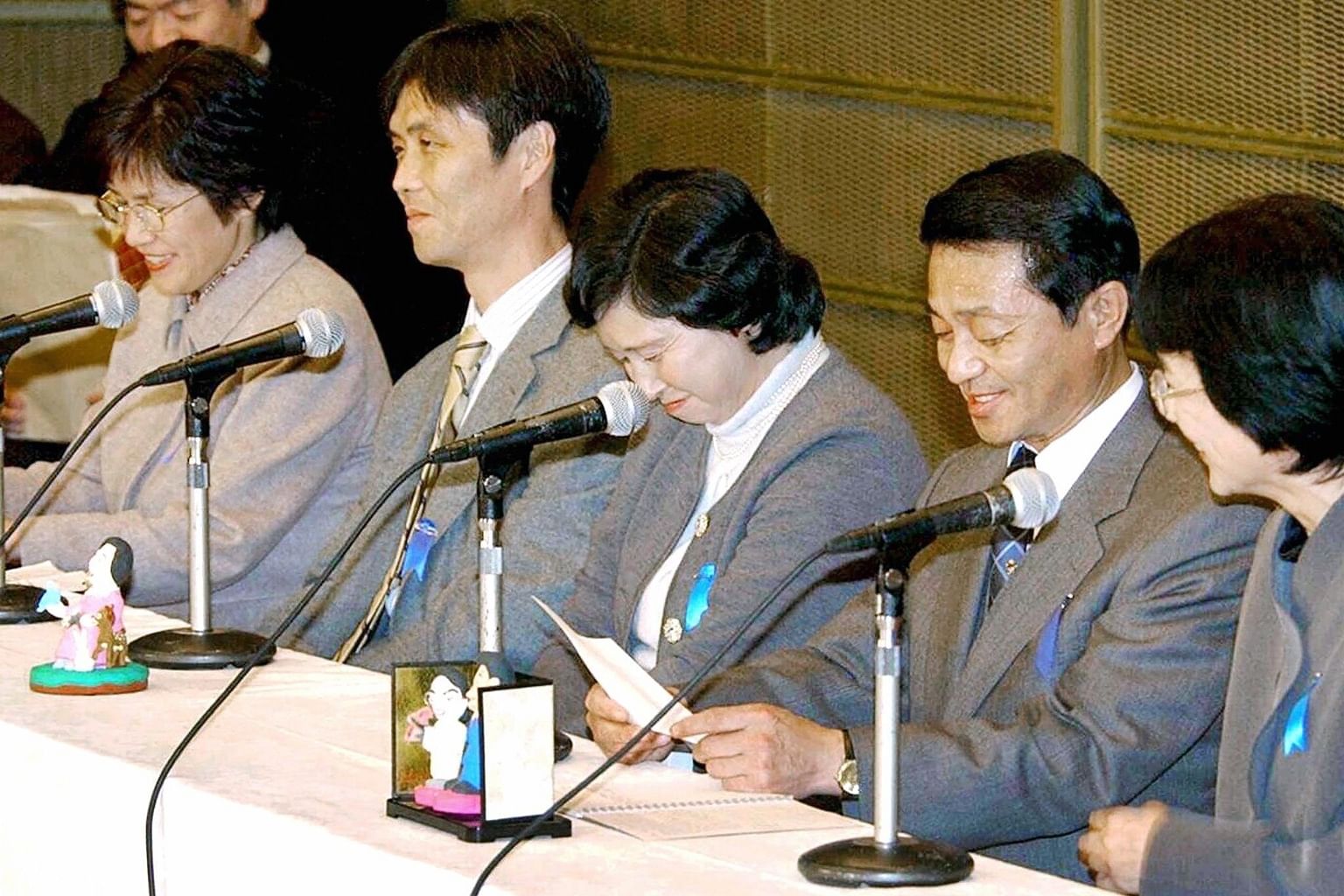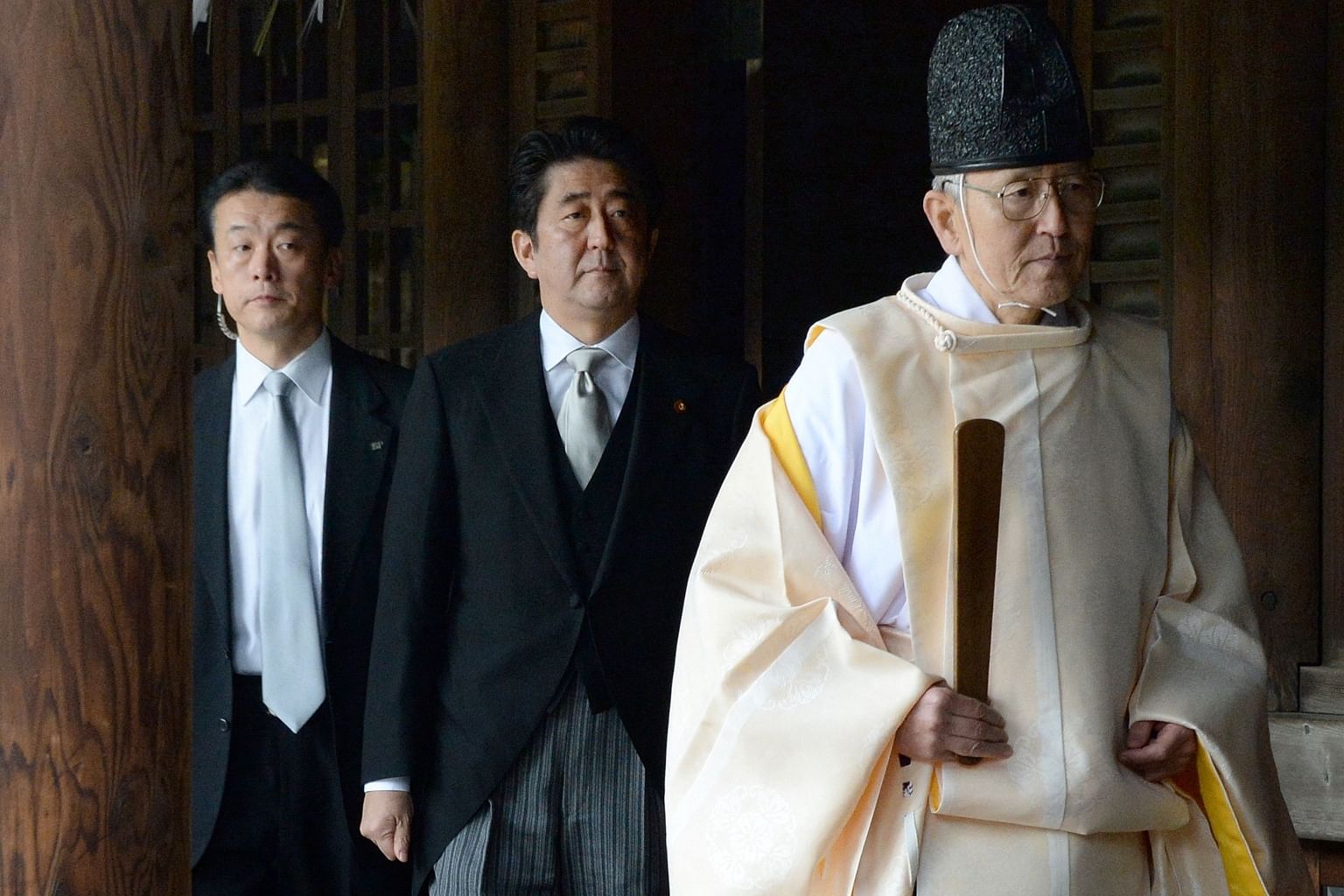Shinzo Abe: Life and times
Sign up now: Get insights on Asia's fast-moving developments

Former prime minister Shinzo Abe was Japan's longest-serving and one of its most consequential leaders in modern times.
PHOTO: REUTERS
TOKYO - Former prime minister Shinzo Abe, who died on July 8 after being shot by a lone gunman, was Japan's longest-serving and one of its most consequential leaders in modern times.
He initiated an economic strategy known as Abenomics to pull Japan out of the doldrums economically that expanded to include female employment and sustainable growth. Its results were mixed.
In foreign policy, he forged an Indo-Pacific strategy that pulled India into the regional balance of power and highlighted principles such as the rule of law.
He was also a polarising figure in Japanese politics, particularly in his efforts to revise the country’s pacifist Constitution to have a fully functional defence force that includes offensive military capabilities.
Here are key moments of his life and political career.
Sept 21, 1954

- Mr Abe is born, the second of three sons, into a prominent political family. His father Shintaro would serve as foreign minister from 1982 to 1986; his mother Yoko is the daughter of Nobusuke Kishi, who was prime minister from 1957 to 1960.
1977 to 1978
- Graduates from Seikei University in Tokyo with a degree in political science.
- Enrols in University of Southern California where he reads public policy.
April 1979
- Joins Japanese manufacturing giant Kobe Steel, working in New York and Tokyo.
Nov 1982
- Begins working as a secretary for his father in the Foreign Ministry, and from 1986 in the ruling Liberal Democratic Party (LDP) where the elder Abe held senior positions.
June 1987
- Marries Ms Akie Matsuzaki, the daughter of Mr Akio Matsuzaki, a former president of confectionery maker Morinaga.
July 18, 1993
- Elected to the Lower House for the first time, taking over the seat in his ancestral Yamaguchi prefecture that his father held until his death in 1991.
Sept 17, 2002

- Joins Prime Minister Junichiro Koizumi's delegation to North Korea to secure the return of abducted Japanese citizens.
Sept 26, 2006
- Becomes Japan's youngest post-war prime minister at the age of 52.
Aug 22, 2007
Addresses India's Parliament on the Confluence of the Two Seas - the Pacific and Indian oceans - in which he suggests a free and open network in “broader Asia” incorporating Japan, India, the US and Australia. The concept of a free and open Indo-Pacific would come to underpin the Quadrilateral Security Dialogue or Quad, also initiated by him, in 2006.
Sept 26, 2007
- Resigns as PM citing poor health, weeks after the LDP's crushing defeat in an Upper House election.
Dec 26, 2012
Becomes PM again after the LDP retakes power from the Democratic Party of Japan. Visits all 10 Asean nations within his first year in office.
Jan 2013
Moots the “Abenomics” brand of economic policies, comprising fiscal expansion, monetary easing and structural reform, to get Japan out of an economic funk. A month later, he declares on a trip to the United States that “Japan is back”.
Sept 26, 2013
- Vows to achieve “Womenomics’ - a society where women can shine - in a speech at the United Nations General Assembly.
Dec 26, 2013

- Becomes first PM in seven years to visit the war-linked Yasukuni Shrine, igniting criticism from China and South Korea and even a rebuke from the US. He does not visit again until after he steps down as PM.
July 1, 2014
- Reinterprets the war-renouncing Constitution to allow ‘collective self-defence’, thus allowing Japanese troops to fight in the aid of allies under armed attack.
Aug 14, 2015
- Expresses remorse but gives no apology on the 70th anniversary of World War II.
- Says future generations of Japanese should not be made to keep apologising.
Dec 28, 2015

- Reaches “comfort women” deal with South Korean President Park Geun-hye to resolve the protracted issue of wartime sex slaves.
Feb 2017
- Gets hit by the first of three scandals that would tar his leadership, involving a sweetheart land deal for an extreme right-wing educator and the tampering of official government documents in connection with the deal.
May 3, 2017
- Sets 2020 target to revise the pacifist Constitution for the first time since its 1947 enactment, but fails to meet this goal.
March 8, 2018
- The Comprehensive and Progressive Agreement for Trans-Pacific Partnership, a high-quality free trade deal, is signed by 11 countries on both sides of the
Pacific, after complex negotiations led by Mr Abe following the US pullout from the original agreement.
Oct 27, 2018

- Becomes the first Japanese PM to visit China in nearly seven years.
Aug 24, 2020
- Becomes Japan's longest-serving Prime Minister in terms of consecutive days in office, at 2,799 straight days.
Aug 28, 2020
- Steps down as PM, citing a relapse of a chronic intestinal disease, as approval tanks under perceived Covid-19 mismanagement.
Nov 11, 2021
- Becomes head of the LDP's largest faction, sparking talk of a political comeback.
July 8, 2022
- Dies after he is shot at a campaign event in Nara city. He is survived by his mother Yoko, 94; his wife Akie, 60; and his two brothers Hironobu Abe, 70, the retired president of Mitsubishi Corporation Packaging, and Nobuo Kishi, 63, Defence Minister.


